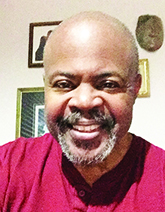
Democrats Warned About Trump Strategy to Woo Black Voters
By Cash Michaels

Jonathan Capehart is a respected African-American opinion writer at The Washington Post who is known for keeping a sharp eye on President Donald Trump, and what his policies are doing to the Black community.
This week, Capehart attracted a lot of attention with a piece titled, “Three things Trump is doing that should scare the hell out of Democrats.”
Three things…the last of which is extremely important to African-Americas Democrats, especially here in North Carolina.
The first, according to Capehart, is that despite impeachment, the Republican National Committee (which will be bringing its national convention to Charlotte this August 24 through the 27th) and the Trump reelection campaign, have raised a staggering $493 million just in 2019 alone.
Experts agree that that is a formidable haul that would make any incumbent president hard to beat.
The second reason Capehart says Democrats should be nervous about the 2020 elections is that beyond white evangelicals, whose support the Republican president cultivates religiously, there is evidence that Trump is also cultivating white Latinos, who reportedly see no connection between themselves and the struggling Latinos and Mexicans who Trump is building a wall to keep out of the United States.
But the third, and most important reason, for the purposes of this story, that Capehart warns Democrats must be leery of Trump’s 2020 campaign moves are his overtures for Black support.
“Just as with the Latino vote, Trump’s outreach to African Americans isn’t about winning a majority of their votes,” Capehart writes. “It’s about shaving off enough votes from the expected Democratic hold on the Black vote to eke out a win. If the drop-off in Black votes that happened between 2012 (President Barack Obama’s reelection) and 2016 happens again in 2020, Trump will win.”
Yes, even with repeated accusations of racism against Trump because of his statements, or policies against African-Americans, if he can pull at least 8% nationally of the Black vote, that can hurt any Democratic opponent in key Electoral college states.
It is no secret that the African-American vote is the most loyal to the Democratic Party of all of its traditional constituencies. But with young African-Americans leaning away from the party in favor of more progressive political figures who are Democrats in name only, not to mention Blacks who feel that the party has always taken their votes for granted, and all of a sudden, African-American Democratic loyalty becomes a real factor.
“African American voters have signaled they will not lie low, be quiet and take one for the team because of the greater goal of taking Trump out of office,” wrote columnist Mary C. Curtis for Roll Call Magazine last June.
But there is another reason Capehart is keeping a keen eye on the “Blacks for Trump” factor - Black men.
Even though Black women are the strongest Democratic Party voters, outpacing even white men and women, Black men are the prime Trump target, Capehart says.
“According to the 2016 exit polls, [Hillary] Clinton won Black women by 90 percentage points, but her advantage over Trump with Black men was just 69 percentage points,” Capehart reports. “Thirteen percent of African-American men voted for Trump and five percent voted for third-party candidates. That’s 18 percent of Black male vote that went to someone other than the Democrat.”
This …explains why the Democratic candidates have been turning their attention to African-American men on the campaign trail,” Capehart adds.
Another factor working for Trump is voter ID. While it’s status is still unknown here in North Carolina for the 2020 general election in November, there are 34 other states where voter photo identification is alive and well, and a useful tool to suppress the Black vote.
And finally here in North Carolina, white turnout in 2020 may exceed the 71 percent white registered turnout that beat out the 64% registered Black voter turnout in 2016, which was nine points behind 2008’s 73% Black registered turnout the first time that Barack Obama ran for president, according to Political Science Prof. Michael Bitzer of Catawba College in Salisbury.
Of course, a lot depends on which presidential candidate Democrats ultimately decide on this summer.
But Trump has made it clear, especially after he launched his “Blacks for Trump” group in November, in addition to advertising in Black media, that he will compete for the African-America vote.
The question is, what will the Democratic Party do, and will it be enough?

